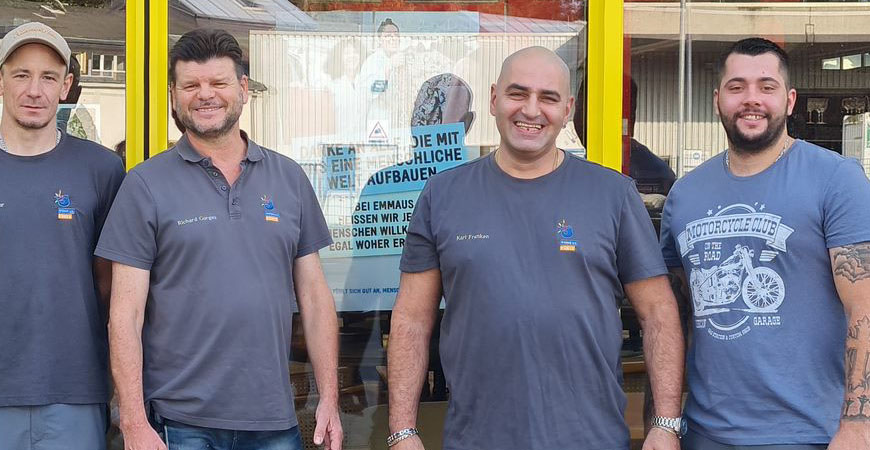Emmaus Punto: fighting addiction
An interview with Richard, Honorary Chair of the Emmaus Punto group which is based in Bergisch Gladbach. Richard tells us about this German group’s experience and expertise on matters related to addiction.
Could you introduce yourself and tell us a bit about how Emmaus Punto was created?
I am the Honorary Chair of our association and I also have a full-time job working in a specialist clinic to help people who take drugs. We created a similar project with Emmaus for 6 patients in 2008 and we called it “Punto” for “point” in “turning point”. People who suffer from addiction should be able to free themselves from the scourges of unemployment, loneliness, homelessness and prison. We launched this activity with just €500 of financial support provided by the Emmausbewegung deutscher Zweig e.V. association under the former Chair of the association, the late Stephan Drechsler. I joined the association in 1983 as an active member but it was before I had completed my degree. It made sense for this project to become part of the Emmaus movement.
Could you introduce your community and its unique characteristics?
Our community is based on the long-term commitment of our 20 or so members and our 12 companions. We speak German and Italian within the community because 4 Italians were amongst our founding members. We are confident when discussing how to stop using addictive substances in our weekly discussion groups and in our mutual aid groups. The feelings of gratitude, joy and humility when people become healthy again are very important and very useful to our community – they are at the heart of what we do.
In addition to your commitment to Emmaus you also work in a specialist addiction clinic. Could you tell us a little about what you do in your job?
People who take drugs come to our clinic directly from prison or from the rehab departments of hospitals. People stay in our clinic for a period of 9 months and they experience community life already in the clinic. My colleagues and I are trained psychotherapists and we organise discussions with our patients on a daily basis. The objective of these discussions is to clarify what it means to stop using and to start being honest and sincere to themselves, to forgive themselves and, in the best cases, to make some friends and to start a new life after therapy. The success rate of this programme, in terms of the percentage of people who do not take drugs again once they have left the clinic, is around 60%. If there is a good option available to people when they are leaving the clinic, such as joining an Emmaus community, then the success rate immediately jumps to over 80%.
What advice would you give to someone who is suffering from addiction?
People first need to go through a medically-supervised period of detoxification that will last between 2 and 6 weeks. This creates a break, a pause, a cut off in the substance use. Never leave people alone during this period, visit them, have friends around, talk honestly to one another and try to introduce them to new people. This helps to create hope and gives people strength to be able to make important decisions and to take the next steps. Reaching the first few targets, as minor as they may be, is essential if the rest of the process is to be successful.
Do you have anything else to add?
We have seen over the years that Emmaus is a highly attractive destination for our patients in the clinic. It is the simple work and the concrete solidarity initiatives that fascinate people. That is why, 15 years after Abbé Pierre passed away, it makes sense to keep moving forward, to keep things simple and to keep the joy in our movement as well as a certain amount of self-criticism and honesty. Emmaus provides a space in society that is essential to many people. We should never forget this.

© Emmaus Europe



